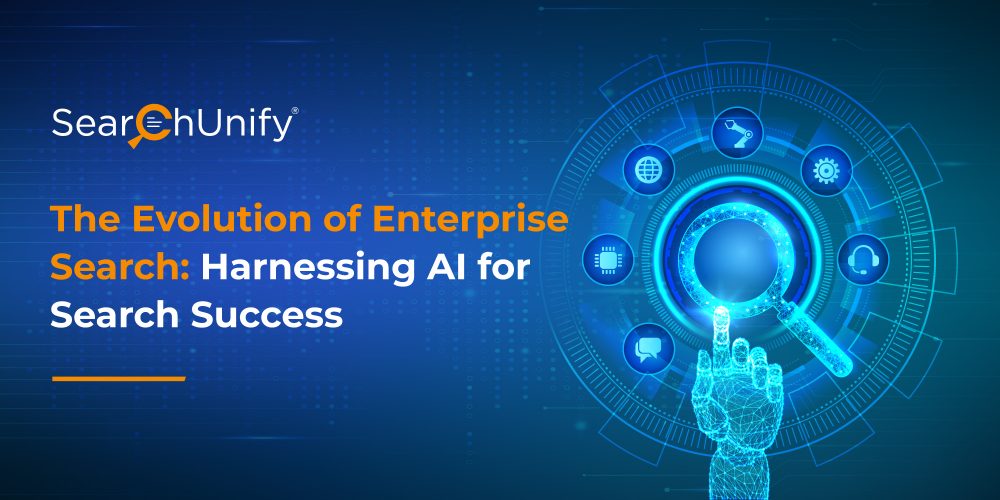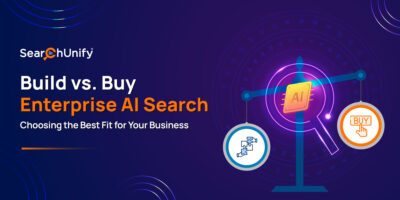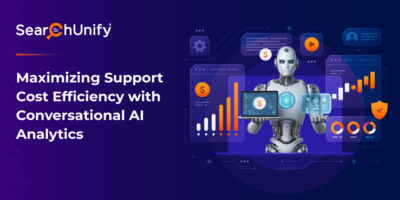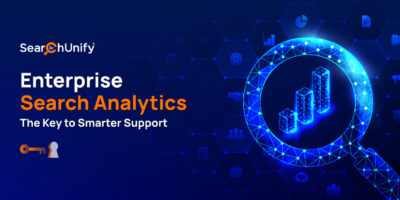
It’s finally Friday evening, and your team is looking for Happy Hour, craving a change of scenery. But what’s the game plan?
Do you plan to wander aimlessly in hopes to stumble upon a hidden gem? Nah! Instead, you whip out your trusty sidekick, Google, and let it do the searching for you.
Talk about convenience, right? It’s no wonder search engines have become an inseparable part of our lives. Well, guess what? Enterprises have their own version too – enter, the superhero of the business world: enterprise search!
However, when data piles up from every corner, it creates chaotic data silos. All this messes up content findability, gives you irrelevant search results, turns customer experiences into snooze-fests, and leaves you scratching your head for insights. Yikes! It’s a recipe for unhappy customers and a sinking ship.
The solution to all these troubles comes in a snazzy cape called cognitive search. Wondering how it works its magic? Buckle up and read on for an exhilarating adventure!
The New Face of Enterprise Search
Traditional enterprise search solutions have limitations in scope, coverage, and user experience. However, AI-infused enterprise search helps overcome them in many ways:
- Large Language Models(LLMs): LLMs have been the talk of the AI town for quite some time now. After all, they are trained on and possess the ability to process large amounts of data and generate human-like responses. When incorporated into cognitive search platforms, they improve the ranking and relevance of search results, generate rich insights, facilitate integration with external systems, and offer intelligent recommendations.
- Natural Language Processing (NLP): AI-powered enterprise search utilizes Natural Language Processing (NLP) techniques to understand and interpret user queries more accurately. As a result, the search engine is able to return contextually correct and efficient responses.
- Unsupervised Learning: Unsupervised learning enables algorithms to find patterns and structures in unlabeled data for continuous learning and improving search results based on new information. This leads to ongoing improvements in search results.
- Intelligent Ranking and Relevance: Cognitive search utilizes advanced ranking algorithms to prioritize search results based on relevance. The results are based on semantics, rather than keywords, to deliver contextually correct information.
- Rich Insights and Analytics: AI-powered enterprise search can generate insights and analytics by leveraging various techniques such as advanced text analysis, natural language processing, and machine learning. By analyzing search patterns, user history, behavior, and other relevant data, AI algorithms can extract valuable information and provide rich insights.
SearchUnify: Your Ultimate AI-powered Enterprise Search Platform for Delivering Seamless UX
SearchUnify incorporates LLMs to elevate the quality of many tasks within a much lower timeframe, as mentioned below.
- User insights: The robust search engine ensures that the search results returned are accurate, by considering the semantics, synonyms, related words, and user context. Further, NLP adds to the overall understanding of what the user is looking for.
- Multiple language options: SearchUnify can be deployed in more than 30 languages! So if you’ve got an international audience, consider language gaps to be a thing of the past.
- Personalized recommendations: The more a user interacts with SearchUnify, it analyzes the search history and other factors such as geographical location, to provide hyper-personalized results and recommendations.
- Entity extraction: Named entity recognition helps extract entities like organizations, customer names, product names, order numbers, and issue categories. With its help, support teams can automate information extraction, enabling them to determine and prioritize the tickets that require immediate attention.
- Human-like interactions: Our intelligent chatbot, SUVA, is trained on diverse datasets that enable it to deliver contextually correct and direct answers. Although it provides human-like responses, you can also customize its tone, and look into insights such as “successful conversations.”
- Cost reduction: LLMs can analyze the content repositories to eliminate complex indexing processes and manual data tagging. As a result, this saves time and operational costs and allows resources to allocate their time to high-priority tasks.
Mastering User Experience With SearchUnify’s AI-powered Enterprise Search
Within just 10 days of deployment, SearchUnify can revolutionize your communities, customer success, and customer support efforts, among others, for delivering an unparalleled user experience.
So if you’re ready to dip your toes into the perfect balance of AI and humanesque tech, head on over to the SearchUnify demo page! That’s right, you can test the waters before fully committing!
Happy Searching!











